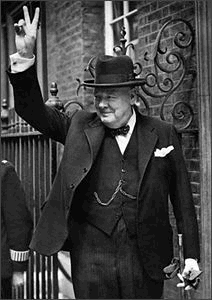Comparative Ethics; Rape
The following is the start of a book I would like to write on ethics. The title is Comparative Ethics. That name going to have to change because Comparative Ethics is technically something else, and yet it correctly describes what I am attempting to do here. We shall have to see.
Why Comparable Ethics?
There is a standard laid down by the progenitor of Christianity that morality does not simply begin and end with what it does to either the society, but moreover that is an extension of the heart, or inward man, of the perpetrator. While it is not necessarily the role of government to regulate or legislate the heart of man, the form of ethics undertaken in the author's Comparable Ethics is meant to follow in the tradition of looking at the heart to determine morality, not establish morality based upon secular pragmatism or utilitarianism.
Which is worse: rape, or deceit that leads to consensual sex? Let us look at a different situation that involves comparable intent and consequences. This is being written about because in the society in which the author lives seems to place the worse guilt on the rapist.
Say there is an elderly woman and money is a scarce thing. She is living from check to check from the government and has no family to help provide for her. She has no ready way to work or help provide for herself. Would it be worse, then, to steal from this woman by force, or to coerce her to freely give up her money?
It would be the opinion of the author that the latter must be the worse of the situation. While either the basic robber, or the fraud artist is but using his given skills as a thieve, the fraud artist is in fact taking more than the robber.
It is agreeable that the basic robber did violate a universal moral that stealing is wrong. It also is agreeable that he did violate the norms of most civilized cultures and countries. There is a level of personal-ness that resides in the intent of the fraud artist. There was an intention to coerce the victim in voluntarily surrendering her possessions. Not only was the woman relieved of her possessions, but the relationship in which the artist entered there was a violation of that trust.
When rape is looked at there is a pattern which falls after that of the thief and victim. Both sex and will are sacred. Will is sacred in that when it is violated for another's gain (whether it be for the pride, sensual-lust, or ego-lust of the perpetrator). The perpetrator can either be an individual, a group, or a society. Rape is a violation of the will in that it forces the woman to submit to an act she would not have otherwise partook in. It is the worse because it is a violation of something sacred.
Coercion, then, is equally the violation of that sacredness, of that will, of the universal moral, and the cultural norm. In addition to this, there is the violation of the personal issue of trust. It could be said that rape is also very personal in that it affects the victim in innumerable personal avenues, it is the intention of this work to make a reflection upon the heart of the perpetrator.
The purpose of this comparative look at rape and coerced sex is not meant to minimize the violent act of rape. In the heart of the perpetrator of fraud-method rape (the term used from here out in reference to one who coerced sex), the rapists could be equated in their effect. But the fraud-method rapist took deliberate deception as his tool to acquire the sensation he desired. It is common in violent rapists to want more than the simple sensation of an orgasm. The need for domination, or a sensation of power, can be seen. The need for affirmation of masculinity, or identity, can also be seen. These things could also be found, it is the position of the author and not necessarily of any other sources at this time, in the fraud-method rapist.
These things do no negate a woman's responsibility to guard both her heart and her chastity. More so, these things should inspire a woman to a higher personal standard in both to whom she gave her heart, and to whom she would give her body. Concurrently, these things should cause a man to take delicate care in how he approaches both the heart and body of not only the woman he does, or would, love, but also towards a general respect towards any woman. Of course, these things written are not meant to purposefully say, by directness or insinuation, that the converse could not be true. It is possible for a man to be taken advantage of. Such a thing is just less likely. (June 2 2008)


No comments:
Post a Comment